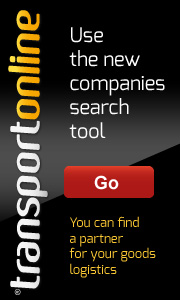Search Company:

Letter of intent signed for 100 zero-emission trucks..
Leinfelden-Echterdingen/Ehrenkirchen – Mercedes-Benz Trucks and karldischinger logistikdienstleister are celebrating a very special anniversary. Mercedes-Benz trucks have been used successfully and reliably for 100 years at the Ehrenkirchen-based enterprise near Freiburg in the Breisgau region. Currently, the company’s own, almost homogeneous Mercedes-Benz truck fleet totals around 120 vehicles from the Actros and Atego model series. The logistics service provider has also concluded full-service contracts with Mercedes-Benz CharterWay for the vehicles so that the wheels can keep on turning.
On the occasion of the anniversary, the partners marked another significant milestone in the history of their collaboration and signed a letter of intent (LOI) that includes the delivery of 100 zero-emission trucks over the next five years. Depending on their intended use and the progress of development, these could be both battery-electric and hydrogen-powered trucks. Daimler Truck Group is focusing on battery-electric and hydrogen-based drives for the decarbonization of transportation. While battery-electric trucks from Mercedes-Benz have been in series production since 2021, hydrogen-powered fuel cell trucks are currently undergoing customer-oriented practical testing.
Christian Wilz, CEO Mercedes-Benz Trucks & FUSO Germany: “The successful partnership between Mercedes-Benz Trucks and the freight forwarding company karldischinger logistikdienstleister represents a long-standing and excellent business relationship characterized by a high degree of respect and trust. I am therefore very pleased that karldischinger logistikdienstleister will continue to rely on trucks from our company in the future and that we have jointly signed a letter of intent for 100 zero-emission vehicles.”
En route to emission-free inbound logistics for the Wörth plant
Together with its logistics partners, Mercedes-Benz Trucks has set itself the objective of achieving locally emission-free inbound logistics for the Wörth assembly plant by the end of 2026. Around 20 eActros 300 trucks are currently already being used in delivery transport to Wörth am Rhein – including an eActros 300 Lowliner from freight forwarder karldischinger logistikdienstleister. At the same time, the company is also working on the electrification of the inbound traffic of other German plants in the Daimler Truck production network, i.e. the Kassel, Mannheim, and Gaggenau plants.
Jürgen Distl, Head of Operations at Mercedes-Benz Trucks, also emphasized and highlighted the importance of the long and successful collaboration: “For a century, the name “karldischinger” has stood for reliability and innovative spirit in the transport industry. The company has been operating as a carrier for transportation at our plants since 1995, and karldischinger logistikdienstleister has managed to establish itself as an extremely reliable partner for our production network. I am very pleased that karldischinger logistikdienstleister is going to be using more battery-electric trucks in our inbound logistics and will thus make a significant contribution to the electrification of our supply chains.”
Karlhubert Dischinger, shareholder of karldischinger logistikdienstleister, recalls his start at the helm of the freight forwarder: “When I took over my parents’ company in 1975 as the 4th generation, I set myself the goal of doubling the fleet from 10 to 20 trucks. This goal was achieved relatively quickly, so we set ourselves further goals – such as the transition from a pure transport company to a highly specialized logistics service provider. As a result, we have significantly expanded our logistics activities, and the fleet currently only accounts for around 20% of revenue. However, as our customers and ourselves attach great importance to safety and reliability, our own fleet continues to be of major importance. We are reinforcing this commitment to trucks with the letter of intent we have now signed for over 100 climate-friendly trucks. The fleet must be modern and efficient, which is why the average age of our vehicles is only two years.” Read more
Source: DAIMLER TRUCK




